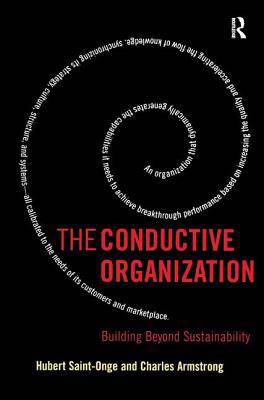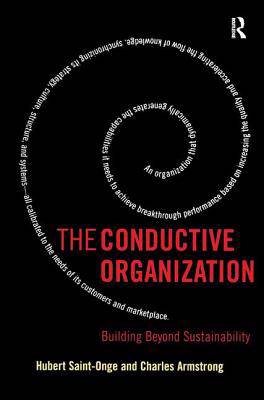
- Retrait gratuit dans votre magasin Club
- 7.000.000 titres dans notre catalogue
- Payer en toute sécurité
- Toujours un magasin près de chez vous
- Retrait gratuit dans votre magasin Club
- 7.000.0000 titres dans notre catalogue
- Payer en toute sécurité
- Toujours un magasin près de chez vous
221,95 €
+ 443 points
Description
An organization's culture lies at the heart of its ability to perform. In the knowledge economy, new rules are emerging and organizations must rethink how they will compete by leveraging their tacit knowledge - their intangible assets - in order to create and sustain a strategic advantage. In this book, Hubert Saint-Onge and Charles Armstrong, two corporate leaders who have been in the forefront of using knowledge management to gain strategic advantage, focus on knowledge-based customer relationships, innovative internal structures, and self-initiated learning cultures, in order to explain the building blocks that must be in place to create and sustain a knowledge-based culture within organizations--a culture that they argue is integral to a high-performance organization. An organization's culture lies at the heart of its ability to perform. In the knowledge economy, new rules are emerging and organizations must rethink how they will compete by leveraging their tacit knowledge - their intangible assets - in order to create and sustain a strategic advantage. In this book, Hubert Saint-Onge and Charles Armstrong, two corporate leaders who have been in the forefront of using knowledge management to gain strategic advantage, focus on knowledge-based customer relationships, innovative internal structures, and self-initiated learning cultures, in order to explain the building blocks that must be in place to create and sustain a knowledge-based culture within organizations--a culture that they argue is integral to a high-performance organization. This book provides a blueprint for creating and leading organizations with strong knowledge-based cultures to achieve breakthrough performance. Using the idea of conductivity, the authors describe the successful organization of the future as one that increases the quality and flow of knowledge within the organization and within its network of suppliers, customers, and other collaborators. The narrative is based on the thoughts, experience, and models of Hubert Saint-Onge and Charles Armstrong, who have successfully led high-performance companies in the financial services sector and the engineering and manufacturing sector. Each chapter includes practical examples from their experience and from other successful leaders.
Spécifications
Parties prenantes
- Auteur(s) :
- Editeur:
Contenu
- Nombre de pages :
- 272
- Langue:
- Anglais
Caractéristiques
- EAN:
- 9781138165748
- Date de parution :
- 27-01-17
- Format:
- Livre relié
- Format numérique:
- Genaaid
- Dimensions :
- 152 mm x 229 mm
- Poids :
- 452 g

Les avis
Nous publions uniquement les avis qui respectent les conditions requises. Consultez nos conditions pour les avis.






